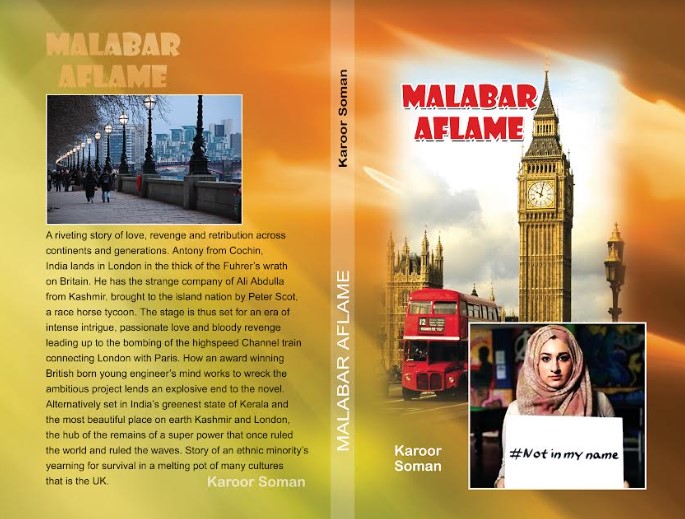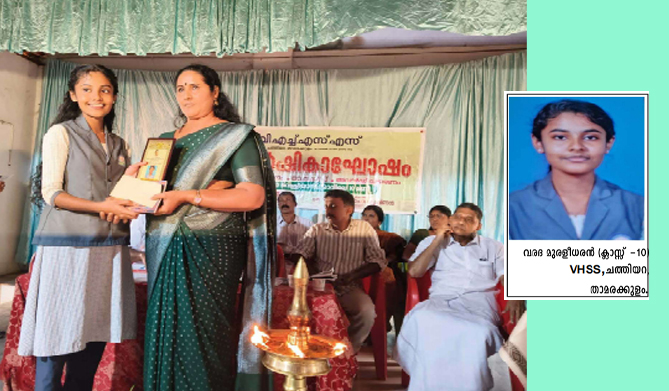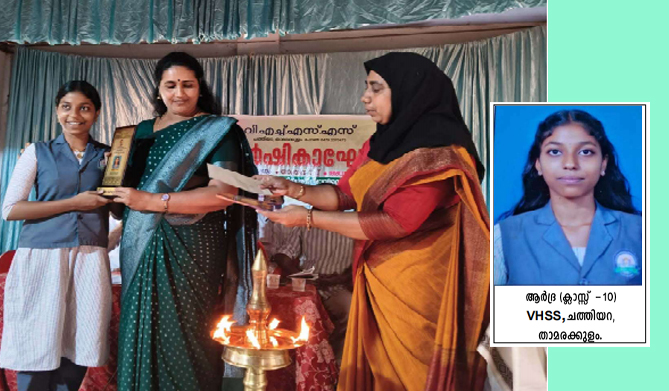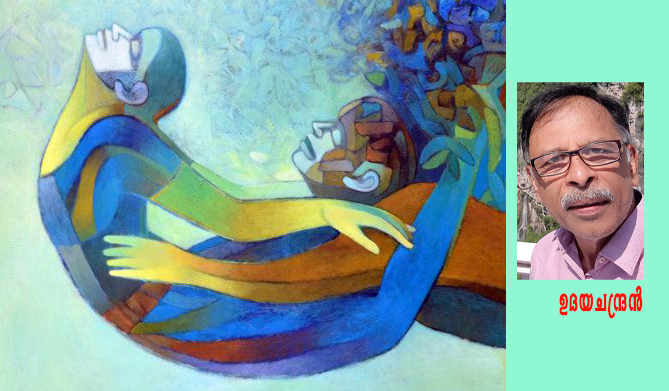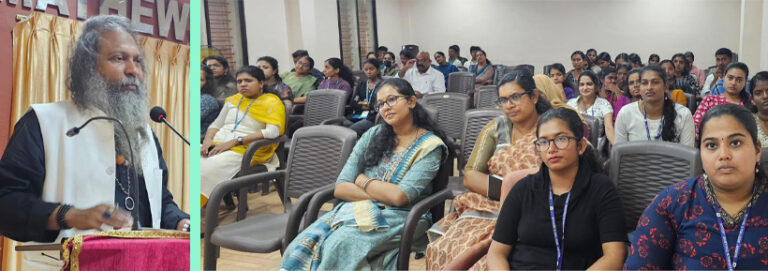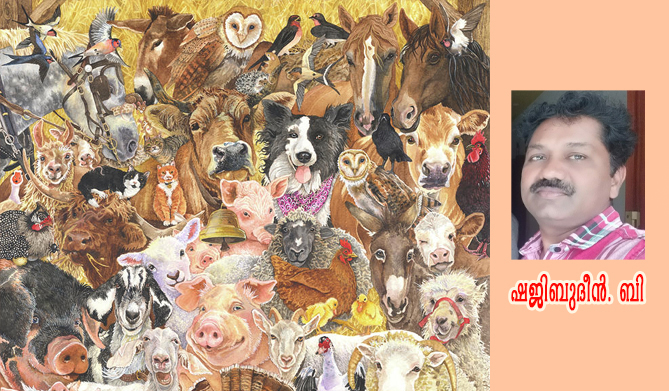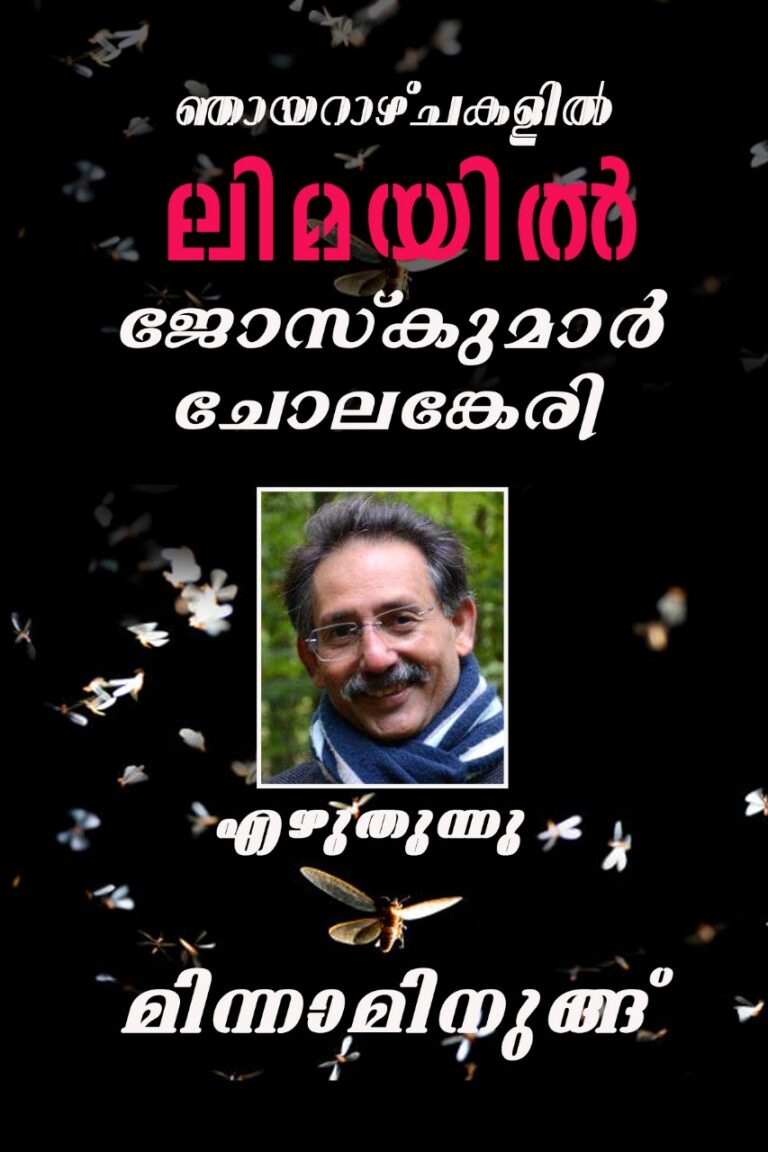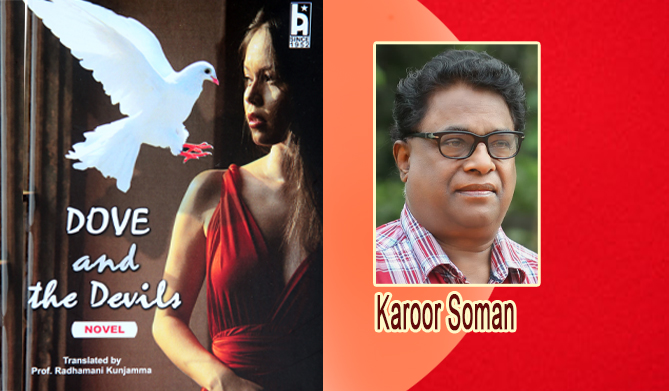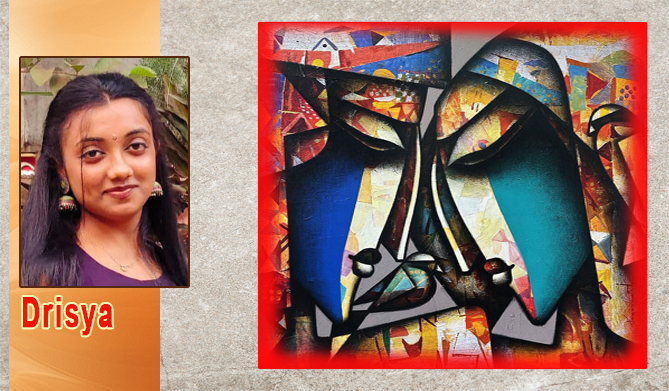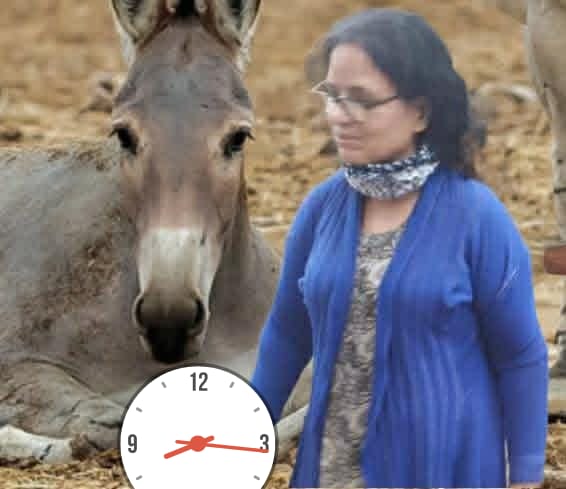Amazon Best Selling Novel “Malabar A Flame” in Lima World Library
FOREWORD
The author of this burning tale of love, sacrifice,
revenge and retribution, Karoor Soman, is surprisingly an
established writer in Malayalam, one of the several languages
spoken and written in India. But this is his debut novel in
English, the language of his adopted country—the United
Kingdom. Fortunately for the writer, he is reasonably well
received by his native readers probably because he writes
well to capture their imagination and his subjects are widely
varied and topical. Malayalam has been recognized as a
classical language in the country and its literature it rich and
flourishing. The tiny state of Kerala where it is spoken is also
one endowed with the highest literacy rate in India.
The problem of language and ethnicity is not confined to
the United Kingdom alone. It is a perennial problem faced
by many societies around the world. If they are English,
Scottish, Welsh and Irish in the UK, countries like India has
as many as 24 officially recognized languages and that many
literatures too. Of course the ancient language of Sanskrit is
still spoken by a microcosmic minority of 13000 in a country
with a massive population of 1350 million.
The novelist who joined the burgeoning world of Indian
Diaspora some four decades ago to end up in the United
Kingdom and passionately join the mainstream of life there.
Even then, he continues to hold an abiding affinity and love for the wisdom of India in general and of his birth place, a
tiny village in the State of Kerala on the southern tip of India
in particular. His state is perhaps the most globalised region
in the whole of India as it attracted the mariners from China,
West Asia and Europe to its shores for trade mainly in spices.
Five centuries back Vasco da Gama from Portugal landed in
Malabar to open the modern period of trade and colonial
relationship.
The English, the French, the Portuguese and the Dutch
colonized parts of the State in the 15th century while the
English had the longest association of nearly 200 years with
India. The author chose to migrate to the UK long after his
country became independent after the World War II. India
became a valued member of the British Commonwealth as
it had the largest land mass and population. Of the Indians
who migrated to the United Kingdom, Malaylees form a
small micro community but significant as they were relatively
better educated and initially served as nurses, doctors, etc.
Among the latest arrivals are professionals like computer
wizards.
The author has been a close observer of the changes that
overtook the country of his adoption and has been amused
by the ability of the island nation to adapt to the need of the
hour and still remain a world power. The United Kingdom
remains the virtual financial capital of a sizable chunk of
the world. It is still practitioners of democracy, a tool they
intelligently used in Scottish referendum in 2014. The novel
thus emerges as a dichotomy of the changes that came
over the author’s chosen land and the small community of
Malayalees that thrive in it. As in the case of every creative,
the present novel could also be partly autobiographical.
One pleasant aspect of the story board is that it covers
the life span of three generations of Malayalees starting
with those who arrived immediately after the War. Then it
touches the milestones of the Kingdom’s strides to the new
millennium, in fact up to the opening of the Millennium
Dome and the linking of the Kingdom with Europe by
the Channel Tunnel high speed train. One should feel that
the novel is so conversant with the current situation in the
world vis a vis Britain to the extent that it misses only latest
referendum over the independence of Scotland or House
of Commons voting to allow the country to join air strikes
against the Islamic State. But the story ends dramatically with
a note on terrorism.
The novel also encompasses the life and times of a
number of ethnic minorities in the British society. Christians
mingle with Muslims and Hindus fall for Christian girls and
vice versa..It is not impossible that modern dynamic society
accepts or tolerates all kinds of relationships sans borders
imposed by differences of faith. Kerala as well as Kashmir
are deftly woven in to the fabric. The narration is simple and
alluring. And the novel has a triggering suspense too to finish
off.
A novelist is a creator as well as a destroyer. He creates
situations in which characters strut and fret on the stage of
life as dictated by geniuses like Shakespeare. He destroys
those characters whom he feels fail to fit in to the larger
scheme of things. Karoor Soman creates situations and
characters but stops short of destroying them. Instead he
finds a different way to dispose them off without destroying
the cardinal virtues that he speaks of. His imagination is so
fertile and his narrative skill is so deft that, I hope, he willfollow this up with tales of deeper and more profound
understanding of the ever increasing migrant population in
the United Kingdom.
There is also excruciating evidence of the relevance
of denouement of the story in the current situation in the
United Kingdom. When the so called Jihadists cut the throat
of innocent victims and threatened to behead another
British hostage, Alan Henning, a cab driver, who volunteered
to deliver humanitarian aid in Syria, British Muslim youths
rose against it. Raising 200,000 responses in no time, a tweet
under ‘NotinMyName’, said: “They do not practice the true
teachings of Islam: peace, mercy and compassion. They are
the enemy of all mankind”. Alihaji an Imam in East Ham in
the novel said it much stronger!
Finally, it is another story on the fabled Malabar, a region
recognised by travelers of yore and glorified by British
administers like William Logan, the author of the historic
‘Malabar Manuel’ published in 1887. In course of time,
British Malabar turned out to represent the entire south
western tip of India named Kerala, the land of Malayalam.
Malabar typifies a glorious past, symbolic of a culture and
in a way a civilization not entirely lost but still on the go. The
excavations going on in Pattanam, off Cochin, in association
with Oxford archeologists prove that Malabar was far greater
than what one might look up in history books. Soman’s novel
will help deconstruct the old Malabar and place it in a modern
crucible for researchers to bank on.

